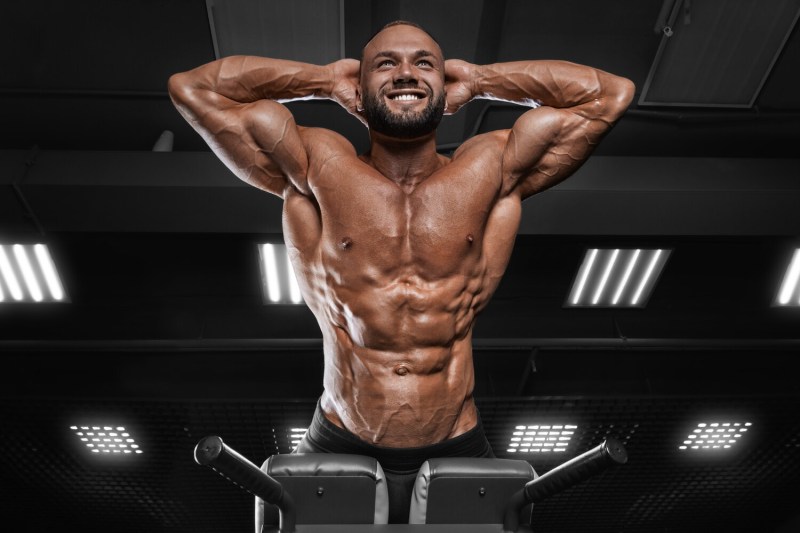Whether you are a newbie in the gym or you are an experienced lifter who simply wants to see gains a bit faster, having an effective game plan in place is essential. What weights you choose with your lifts can make a big difference in your results. As a personal trainer, I have experimented with many lifting techniques, and light weights vs. heavy weights is one of them.
Keep reading to learn more about what weight you should reach for in the gym, as well as what strategies bodybuilders and powerlifters use!
Is it better to lift light or heavy weights?

Whether light or heavy weights are the right choice depends on your fitness goals. Heavy weights are ideal for building strength and muscle mass, as well as increasing your metabolism, as they challenge muscles through progressive overload. Light weights used with high repetitions, on the other hand, improve muscle endurance and are effective for beginners or those who are in recovery.
Combining both approaches can optimize results for lifters, as heavy weights build foundational strength while light weights enhance stamina and allow you to focus on technique. Ultimately, your goals — whether strength, toning, or overall fitness — determine the best approach.
No matter which weights you prioritize, being consistent with strength training can have many perks. One study found that the “benefits of resistance training include improved physical performance, movement control, walking speed, functional independence, cognitive abilities, and self-esteem.”
Can you build muscle with lighter weight and high reps?

Yes, you can build muscle with lighter weights and high repetitions if you push your muscles close to failure. High reps with lighter weights create metabolic stress and muscle fatigue, which stimulate hypertrophy, especially when paired with proper form and consistent effort. This approach improves muscle endurance and size while reducing the risk of joint strain.
To maximize results, gradually increase reps or sets over time, ensuring progressive overload. Nutrition also plays a key role — adequate protein and calorie intake support muscle recovery and growth. While progress may be slower compared to other methods, light weights can still effectively build muscle.
Can you build muscle with heavier weight and low reps?

Yes, you can build muscle with heavier weights and low repetitions, as this method emphasizes muscle strength and hypertrophy. Lifting heavy activates fast-twitch muscle fibers, which are responsible for size and power gains. Using lower reps, typically four to eight per set, with heavier loads creates high mechanical tension, a key driver of muscle growth.
Proper technique is essential to prevent injury, as heavy weights can place more stress on joints and connective tissues. Adequate rest between sets and progressive overload are crucial for maximizing results. When paired with a protein-rich diet, heavy weightlifting can effectively build muscle mass and strength.
Do bodybuilders use light or heavy weights?

Bodybuilders are known for their amazing physiques, so do they use light or heavy weight? They actually typically use both, and it can vary depending on their training goals and phases.
Heavy weights with moderate reps (six to 12) are commonly used to build muscle size and strength, as this rep range maximizes hypertrophy. Light weights with higher reps (12 to 20) are often incorporated to improve muscle endurance, focus on specific muscle groups, or achieve a “pump,” which enhances blood flow and nutrient delivery.
By combining both approaches, bodybuilders target all muscle fibers and prevent plateaus. They also prioritize form, time under tension, and progressive overload to optimize results, regardless of the weight being lifted.
Do powerlifters use light or heavy weights?

Powerlifters primarily use heavy weights to build maximum strength and improve their performance in the squat, bench press, and deadlift. Their training focuses on low repetitions (one to five reps) with heavy loads to develop power and increase neuromuscular efficiency.
While being able to lift as much as possible is the goal for powerlifters, some may also incorporate light to moderate weights for accessory exercises and to refine their lifting technique. These lighter sessions help improve muscle imbalances, joint stability, and endurance without overloading the central nervous system.
By balancing heavy lifting with lighter accessory work, powerlifters enhance their overall strength, reduce injury risk, and maintain proper form during maximum-effort lifts in competition or training.
Frequently asked questions

What are the disadvantages of lifting light weights?
Lifting light weights may limit muscle growth and strength gains, as they often don’t provide enough resistance to challenge muscles effectively. This can result in slower progress and less efficient workouts, particularly for advanced lifters. Additionally, relying solely on light weights might not improve bone density or overall functional strength, which can support your longevity in the long run.
Is it better to use light or heavy weights to lose weight?
Using heavy weights is generally better for weight loss, as they build more muscle, increase your metabolism, and burn more calories post-workout. However, light weights with higher repetitions can also aid fat loss by improving endurance and burning calories during exercise. Combining both approaches often yields the best weight-loss results.
Will light weights tone your arms?
Light weights can tone your arms if used with high repetitions and proper form, helping improve muscle endurance and definition. However, for noticeable results, pairing light weights with a balanced diet and progressive overload is essential. Heavier weights may be more effective for faster muscle growth and strength development.




